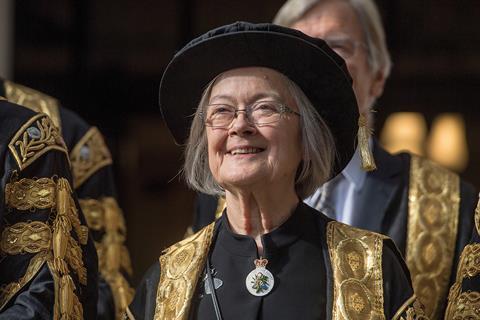All hail Lady Hale
Justice for Everyone: The Jurisprudence and Legal Lives of Brenda Hale
Edited by Rosemary Hunter and Erika Radley
£95, Cambridge University Press
★★★★★
This collection of essays marking Lady Hale’s retirement and commemorating her ‘remarkable career to date’ is organised thematically along the lines of her roles of academic, law commissioner and judge. Almost half comprises analysis of her jurisprudential developments with the remainder offering a more personal insight from those who worked with her.
The list of contributors spans leading academics, judges, and other eminent lawyers. There are 34 chapters in all although many are quite short.
One cannot help but be drawn to Hale’s list of ‘firsts’ – she was the first woman to be appointed to several senior positions including law commissioner, Appellate Committee of the House of Lords and then president of the Supreme Court. Her autobiography elaborated the life story surrounding that list and this book details the significant impact she has had on the law and legal thinking while achieving those firsts.

In many ways this impact is both various and cumulative. For some readers, Hale’s earlier roles will be less well known than her more recent judicial career and the book serves as an important illustration of the breadth and depth of these.
Accordingly, four chapters cover Hale’s 18 years at Manchester University where she helped establish the Journal of Social Welfare Law, co-authored one of the foremost textbooks on family law and also the groundbreaking Women and the Law.
This experience in family law meant that during her 10 years at the Law Commission a key contribution was as an architect of the comprehensive reform that became the Children Act 1989. The book explores this achievement in several of its chapters.
Understandably, the main focus is on Hale as legal luminary but it does not fail to indicate where she has attracted criticism and controversy, for example being labelled as ‘a totemic hate figure for the Daily Mail’ for a perceived subverting of family values while at the Law Commission (Mulcahy and Harris, Chapter 10).
The aim of the book is to provide enjoyment and reflection to students and practitioners who want to ‘learn more about the jurisprudence and legal lives of this remarkable woman’. The collection succeeds in this and provides an expert and comprehensive account of how its subject has helped to shape socio-legal history across six decades.
Nick Clapham is a senior teaching fellow at the University of Surrey and non-practising solicitor































No comments yet